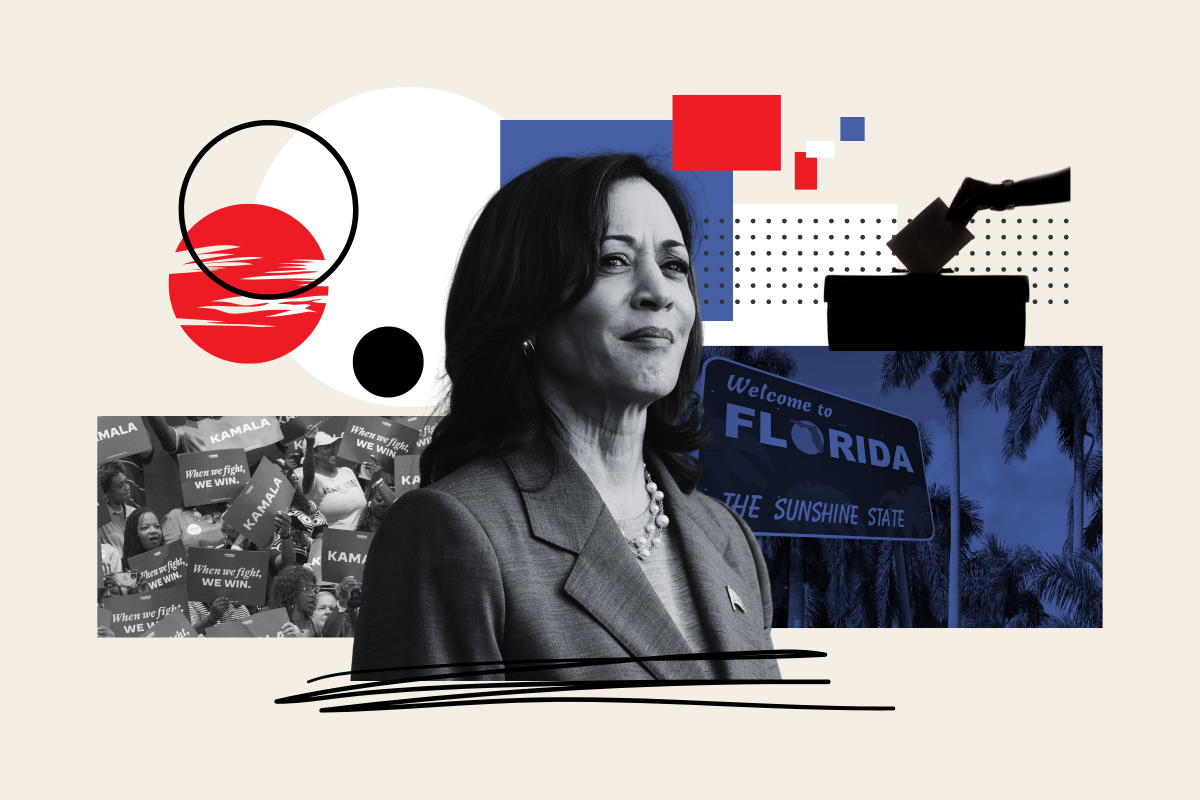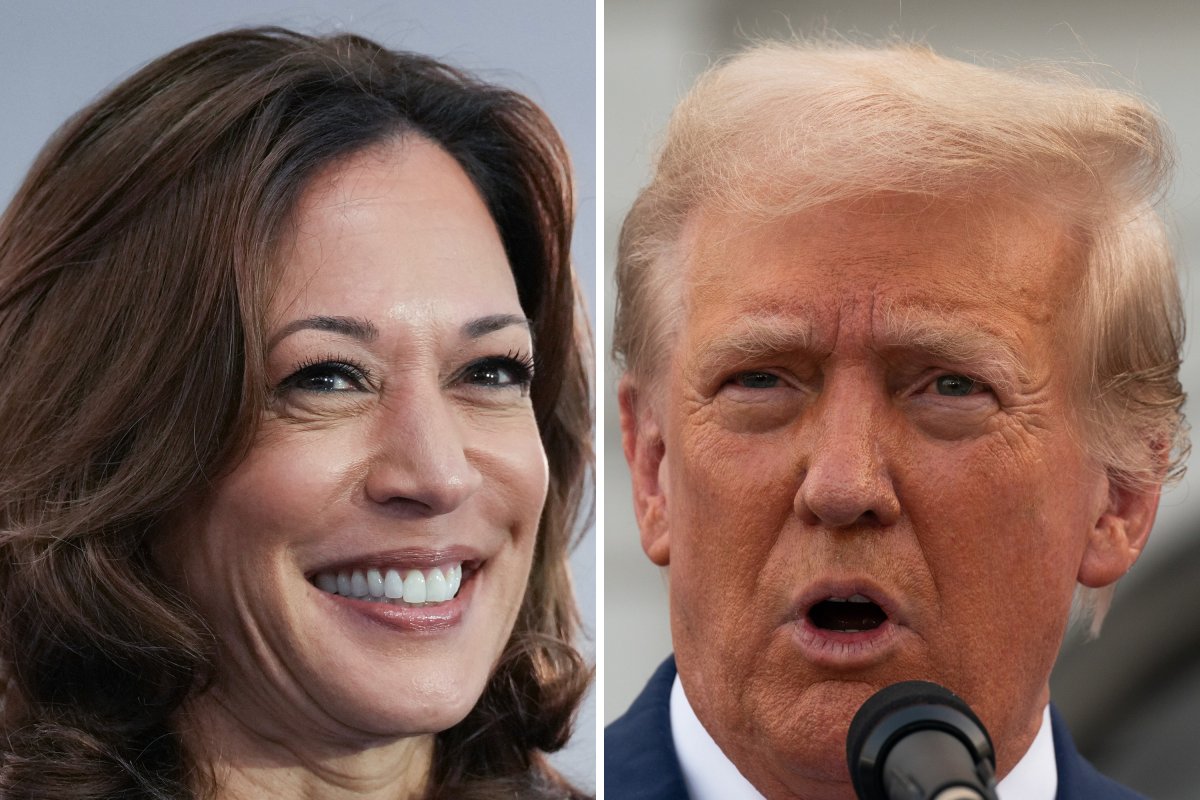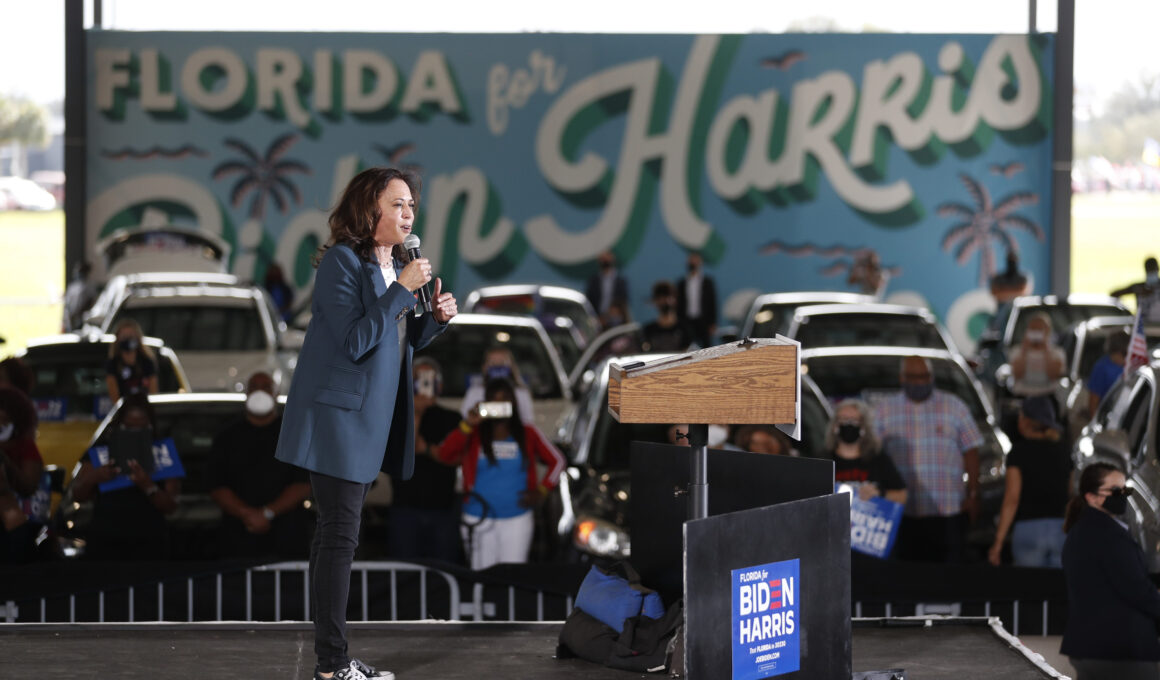Vice President Kamala Harris continues to gain ground on former President Donald Trump in polls, prompting some experts to speculate to Newsweek that the Democratic candidate could pull off a surprise victory in red-leaning Florida.
Florida, until relatively recently considered a highly coveted swing state by both major political parties in presidential elections, has shifted right over the past few election cycles. Former President Barack Obama was the last Democrat to claim victory in a presidential election, winning the state narrowly in both 2008 and 2012.
However, Trump has won in his adoptive home state by widening margins in each the last two elections—defeating former Secretary of State Hillary Clinton by just over 1 percent in 2016 and President Joe Biden by more than 3 percent in 2020. The state seems to have only skewed further Republican since then.
During the 2022 midterm elections, when Democrats performed better than polling suggested in many other areas of the country, Florida Republicans romped to victory by wide margins, including Governor Ron DeSantis winning reelection by nearly 20 points.

Florida Polls Narrowing
Prior to Biden exiting the race and endorsing Harris at the top of the Democratic ticket on July 21, polling in Florida suggested that Republicans would likely continue their string of relatively comfortable victories in the Sunshine State in November.
While polls conducted since Harris entered the race still show Trump leading, some of the most recent surveys suggest that she may be drawing close to level, due in part to a significant advantage over Trump among women and Black voters.
A USA TODAY/Suffolk/WSVN-TV poll conducted between August 7 and August 11 and released last week found that Trump was leading Harris in Florida by 5 points, barely outside of the poll’s 4.4 percent margin of error.
A poll conducted on August 10 and 11 by the Florida Atlantic University PolCom Lab and Mainstreet Research USA offered even more encouraging news for Harris, showing the vice president trailing Trump by 3 percent in a head-to-head matchup.
When independent candidate Robert F. Kennedy Jr. was included as an option, Harris cut Trump’s lead to just 2 points. The poll did not include a margin of error but stated that similar polls typically have margins of error of 3 percent.

Is a Democratic Win Realistic?
Dr. Kevin Wagner, a Florida Atlantic University political science professor and co-director of the PolCom Lab, told Newsweek via text that “turning Florida blue would be a surprising outcome” in light of “the evidence we have from the last few election cycles.”
“The state has a clear and fairly pronounced Republican lean,” Wagner said. “If Democrats turnout, it could potentially be competitive, but I’d need a longer polling trend to substantively shift the outlook.”
“Floridians are not easy to categorize,” he added. “Though, like many Americans top issues include the economy, cost of living, and immigration. The dominant issue changes a bit based on location and party identification.”
Wagner’s Florida Atlantic University colleague Craig Agranoff, an adjunct professor specializing in political marketing and campaigning, argued in a text to Newsweek that although Harris “flipping” Florida this year “would be a significant challenge,” it is “not out of the realm of possibility.”
Dr. Judithanne Scourfield McLauchlan, an associate professor of political science and founding director of the Center for Civic Engagement at the University of South Florida St. Petersburg, said in an email to Newsweek that “it definitely seems as if the tide has begun to turn” and “Florida could be in play.”
McLauchlan suggested that a Harris win is possible due to a “surge in support for Harris in the Latino community,” ballot initiatives on abortion rights and recreational marijuana and enthusiasm that could result in increased Democratic turnout among women and younger voters.
“The support for Harris Walz looks very much like the Obama coalition that won Florida in 2008 and 2012,” McLauchlan said. “With Harris at the top of the ticket—and the new enthusiasm of Democratic base voters, women, Latino voters, youth voters—and the ballot initiatives that should drive turnout—it actually seems possible that Florida could turn blue.
“If these trends continue, Florida is certainly within striking distance,” she added.
A Close Loss Could Still Benefit Harris, Democrats
Regardless of the election outcome, Harris keeping Florida close could still improve her overall chances of taking the White House by forcing Trump to spend campaign money and time in the state instead of battleground states like Pennsylvania.
However, Democrats have been reluctant to spend ad money in Florida this year due to the state’s recent red lean. Only around $300,000 had been spent on the presidential election as of last week, according to a Miami Herald report citing Christopher Brimer of the Atlanta agency Canal Partners Media. Trump’s campaign had reportedly not spent any money.
A strong Harris performance in Florida, whether it results in her victory or not, could have an added benefit for Democrats by driving up voter turnout in ways that could spell trouble for Republicans in other high-profile races.
Last week’s USA TODAY/Suffolk/WSVN-TV poll showed that incumbent Republican Senator Rick Scott had a net favorability rating of minus 14 points, while unverified reports suggest that Scott has poured large amounts of his own money into his campaign to fend off Democratic challenger Debbie Mucarsel-Powell.
“Even if Kamala Harris doesn’t win Florida, narrowing the gap could energize the Democratic base and drive turnout in other closely contested states,” Agranoff said. “A close result in FL could also signal shifting demographics or changing attitudes, which could have long-term implications for future elections.”





